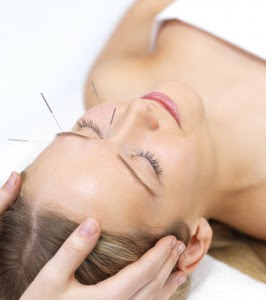I happen to live in a hurricane prone part of the United States, so every Fall those of us in the path of potential storms become keenly aware of the weather. Hurricane season officially starts much earlier, but it seems like late August, the month of September, and even in to October are the months when the greatest threats occur. Like anything, this heightened awareness is somewhat limited to faithfully watching the Weather Channel, depending on how much time has elapsed since the last threat of a hurricane or an actual storm has plagued our part of the planet. A sort of wary apathy takes hold and we forget the items we need to keep on hand or what precautions we really should be taking in case a tropical storm or hurricane comes our way.
Here are a few tips to help remind you, no matter where you live, of the things you need to do to make sure you are ready for any natural disaster:
* Know your evacuation routes, whether you live in a hurricane prone area or someplace that never gets hurricanes, it's important to know the designated routes to get you out of harms way.
* Know where the local shelters will be set up. Most local governments can give you a list of the facilities in your area that will be set up as shelters in case of an emergency. If you have pets make note of the shelters that will allow pets or where pets will be accepted in your area.
* Keep a list of your medications, get them refilled if you have time, and be sure to take them with you if you have to evacuate. Make sure to note the dosing information so that if you need to have them replaced you will know the dose you need to take and a schedule for taking them. Don't forget your pets and any medications they may need. If you have other special needs such as oxygen, make sure you have the contact information for the company that provides that service.
* Keep enough non perishable specialty foods you may need on hand. A week's supply is recommended but a minimum of 3 days is a must. Remember that specialty food stores that carry items such as gluten free may be affected even if you are not so it may take awhile before you can get those items again. Again, don't forget your pets and any special foods they may need if you are forced to leave your home.
Photo Credit: NOAA
* If at all possible, have family or trusted friends keep a list of your insurance contact information, doctor's numbers, bank information (including credit cards), and even a copy of your drivers license. That way if these documents are destroyed you will have access to your information much sooner. Just be sure that you leave this information with a trusted source. Remember that you DON'T have to give them any password information, but you may want to keep that information somewhere handy so you can retrieve it before you need to evacuate if you have time.
* Keep a detailed inventory of your possessions. Document serial numbers of your electronic equipment, such as TV's and computers. Keep a list of expensive artwork, jewelry, and valuable collections (including coins, stamps, figurines, silver, crystal, china, bonds, and books, etc.). Itemize your furnishings and make note of any antique or valuable pieces. You may even consider video taping your home and keeping the tape with family living elsewhere to help you when it comes time to submit an insurance claim if necessary.
* Consider installing a whole house generator if you live in an area plagued by outages. This is very important for people who need oxygen concentrators which run off of your home's electricity. Portable generators are also available but will provide less available power and are difficult to get out of your garage or basement during or right after a storm. Remember to NEVER set up a portable generator inside your home due to the risk of carbon monoxide poisoning. Having a generator, whether portable or whole house is something you want to do well ahead of time, they sell out quickly following any natural disasters where power has been interrupted.
* Keep the propane bottle on your gas grill filled, it can provide a cooking source if you lose power, and it can also be used to heat and purify water.
* Keep the gas tank of your car filled in case of an evacuation. Many gas stations close down as a storm draws closer, and they likely won't be able to pump gas if power is lost.
Photo Credit: National Geographic
* Make sure you have access to cash. Whether you chose to keep some cash on hand or simply familiarize yourself with bank machines in your area, it's important to have some cash available following a natural disaster. Many businesses, including gas stations are unable to process credit cards for a period of time following a disaster.
* If you don't have family close by, set up a call list to keep tabs on friends in the area and have them do the same for you. Have a list of their phone numbers (including cell phone numbers) and addresses in case of an emergency. Having their address and vice versa will allow emergency responders to find them if you feel they are in danger and you are unable to contact them. Also make sure that you have the phone numbers of relatives you may need to contact who are not in your area so that you can check in to let them know you are alright.
* Keep your cell phone charged and be sure to take the charger with you if you need to evacuate.
Photo Credit: NASA
* Have a well stocked first aid kit, extra batteries, flashlight, a battery operated radio (to tune in to your local news and NOAA), non perishable food such as soups, beans, granola bars or power bars, and plenty of bottled water to tide you over if stores in your area are closed for a few days, or if you can't get to the store. If you use natural gas you may also want to keep a wrench handy and know how to shut off the gas main to your house as a precaution.
* Move any furniture or possessions to an upper floor or attic if possible to minimize possible damage. Unplug all electrical appliances that can't be moved and remember NEVER touch any electrical appliances when flood water is inside your home.
* Bring in or secure any items that will be affected by high winds such as lawn furniture or decorations and trashcans
* If you do have to evacuate and the water has already begun to rise, DO NOT drive through standing water. Nearly half of all flash flood related deaths are vehicle related. It doesn't take much water, just 2 feet, to float a car away and you can't tell just by looking how deep the water is, so play it safe and find another route to higher ground.
* If you do need to evacuate, do not return to your home until authorities have declared it a safe place to return to. Do not go sightseeing following a storm. Debris and other dangers may exist including chemicals and waste that may have contaminated the water or ground.
Photo Credit: USGS
* If you experience any damage, contact your insurance company quickly to begin the claims process and working towards restoring your property and possessions to the way they were.
This list encompasses just a few things you can do to keep yourself prepared for the unthinkable. By planning ahead you can help minimize the stress and anxiety that comes with any natural disaster where there is a bit of forewarning, such as hurricanes or flooding. The most important thing anyone can do is to heed the warnings given by your local authorities. It's never a good idea to think that you can ride out the storm on your own. By paying attention to the warnings and doing all you can to prepare, you'll be that much safer if a disaster does happen to affect your area.
National Weather Service Photo
Disasters, whether they involve fire, flooding, high winds/tornadoes, earthquakes, or even ice and snow, are not something any of use want to encounter, but being prepared is the key not only to your survival but also to your peace of mind. Remember that the time to prepare for any natural disaster is NOW...don't wait!
Stay Safe!
To learn more about severe weather in your area Click Here

































